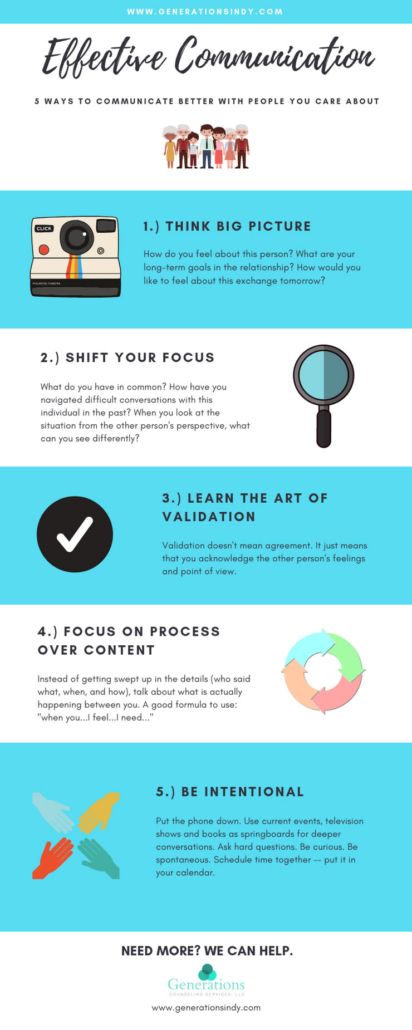Kim — a bright and spunky teenager — had a long history of fighting with her mom. After a couple sessions with them together, I requested to meet with Kim’s mom one on one. She launched right in to tell me how prickly Kim was. “It never fails. We sit down to have a normal conversation. I know both of us want things to go well. But inevitably, it turns into this enormous fight. She gets completely defensive and I lose my cool. Half the time I can’t even remember what we were trying to talk about. She storms off and tells me I’m the worst mom ever.”
Mom was very interested in trying to help me understand how unreasonable her daughter could be. And, I honestly couldn’t argue. Kim was a difficult kid.
Got a prickly person in your life?
However, I had to figure out a way to gently let mom know that she was probably the one who needed to change.
I asked Mom to tell me about a recent fight.
“Well just yesterday, in a perfectly normal voice, I asked Kim to please put away the dishes. Immediately she started whining about what a bad day she’d had and how exhausted she was from school and a pop science quiz.”
Mom rolled her eyes.
“I absolutely lost it. I had a bad day too and I guarantee you I’m as exhausted as she is! Can you please just help me figure out how to get through to this girl?”
What I had to explain to Kim’s mom, and anyone else who struggles to have normal conversations with people-they-love-who-can-sometimes-be-a-little-prickly, is the secret of validation.
When someone tells you they have had a bad day — for whatever reason — the last thing they want to hear is that they are overreacting, that someone has it worse, or that their problems aren’t that big of a deal.
At least I know that when I’ve had a bad day, what I really want is for someone to put their arms around me and say, “I’m sorry. It sounds like you are exhausted. Is there anything I can do to help?”
When someone says something like that, it can absolutely take our breath away. We feel understood, valued, connected. And most of the time, we find ourselves less defensive and more cooperative.
While I was in grad school, I spent several years in therapy. I was a single mom, going to school, working all the time, and financially at the end of my rope. One afternoon I lamented to my therapist about something that had happened to me many years ago. I KNOW I was being whiny, and I’m sure I was overreacting to whatever this was. Even I was annoyed with my angst. I pretty much expected him to tell me to put on my big girl pants and get on with my life.
But he didn’t.
Instead, he just waited for me to take a breath, and then said simply, “Oh my goodness, Joanna. That must have been so hard for you.”
I can’t tell you how relieved I felt to know that someone “got” it.
And weirdly, his kind words actually made me want to suck it up a little and stop my whining.
This is the power of validation. Honestly, something about being human is that we sometimes just want someone to bear witness to our pain. It doesn’t matter if we are being irrational or unreasonable. We just need someone to truly hear what we are saying — whether or not they agree with us — and say, “I get you. I can see how that would have been upsetting to you.”
I try to get married couples to do this all the time and honestly, most of them are terrible at it.
When I explain the concept of validation, and they try it, at first it usually sounds like, “I’m sorry you feel that way, but….” or “You don’t have to be so upset,” or “Yeah, well maybe now you can understand why I was so mad the other day…” and so on. (#jobsecurity)
Instead, true validation, to quote the very-wise Brené Brown, sounds something like this: “I don’t even know what to say right now, I’m just so glad you told me.” (This is a great video about empathy vs. sympathy and the power of validation.)
Over the last 10 years I have spent a lot of time on both sides of the couch, and I’ve learned a lot about how to do validation well. (Doesn’t mean I always do it well, it’s just that I know it when I see it.)
If you want to have better connections with the people you love and reduce the likelihood of conflict in your relationships, you would be wise to develop the very fine art of offering validation. Here are some ways you can work on it:
1. Think about the person, not the problem. Okay – your kid is being annoying, for sure. But underneath the annoyance is a person that you would literally give your life for, and they’re having a bad day. Whether or not you can relate to that, try to imagine how THEY might be experiencing their circumstances, and then mirror that back to them. “It sounds like you are really frustrated with your math teacher.” or “I can imagine you’d rather be doing just about anything than putting away the dishes right now.”
2. Distance yourself from your emotions. I know this is super hard because I’ve had to do it myself. When someone comes at you with an accusation or a complaint, it is easy to let those defenses come up. But defensiveness doesn’t solve problems. Try to step away from the emotion you’re feeling, and focus instead on how you would like to feel tomorrow, when this moment is over. Wouldn’t you like to remember this as Carl being kind of a jerk and you being calm, cool and collected? “Carl, it sounds like you’re really angry with me. How can we work together to fix this problem?”
3. Remember that you don’t have to be profound. I read a story one time about a guy whose father passed away. He was recalling all the unintentionally-insensitive things people said to him at the funeral. He said the one person that made the biggest impact on him, the one that gave him the most comfort, the one whose presence he treasured the most — was the one who just sat next to him and never said a word. Our quiet presence can sometimes be the most powerful form of validation.
4. Never underestimate the power of humor. A little humor, in the right dose, can often be just the thing. One time I was with a friend who did childcare. We were trying to talk and were both terribly annoyed with the kids who were being super annoying. All at once, she turned to me and said, “I feel like pinching someone.” Her honest self-disclosure had the perfect amount of humor and was so validating to me — who at the time was always beating myself up for not being the perfect mother. (That was then, by the way. I now fully accept that I have and will continue to mess up my kids.)
Validation is way easier said than done, but I promise, it is an art form and it can be learned. It just takes practice.
Need more? If you are feeling stuck and need some outside help in managing your communication, emotions, or relationships, our team at Generations Counseling is available! Give us a call at 317-743-8202 or email at: [email protected] today.














